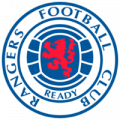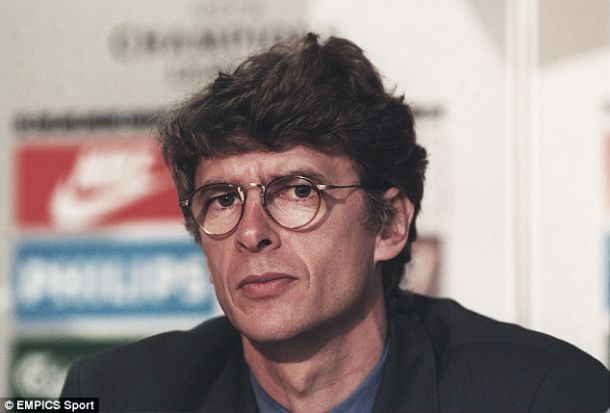"Arsene Who?" was the headline on the back pages of the Evening Standard in 1996 when Arsene Wenger took over as manager of Arsenal. The headline was quite right, he was completely unknown in England but he's certainly known now, quickly becoming one of the best managers in the footballing world.
Tomorrow evening will see Arsene Wenger take on former employers Monaco, as Arsenal entertain the French side in the last 16 of the Champions League. For once, the Gunners seem to have an easier route into the quarter-finals, a stage of the tournament they haven't reached since the 2009/10 season having faced the likes of Barcelona, AC Milan and Bayern Munich previously.
Monaco are a strong side defensively and are very well organised but this match up does provide Arsenal with perhaps their best chance at reaching the quarter-finals of Europe's major cup competition in recent years. The fact that the French club are Arsene Wenger's ex-team therefore gives us a chance to reflect on the journey he took to become Arsenal manager.
Starting out and playing career:
Arsene Wenger's playing career wasn't the most glamorous with his playing days spent at amateur clubs such as Mutzig, Mulhouse, ASPV Strasbourg and also RC Strasbourg. The latter is perhaps the most known of those clubs above, and currently play in the French third division, after Ligue 1 and Ligue 2. It was his experiences with these clubs that aided him, as well as his education when he was a young adult. He was very interested in politics and studied economics. It was his manager at Mutzig, Max Hild, that he perhaps has the most to thank for though. He was later to become Wenger's mentor and helped him greatly in understanding the game. At RC Strasbourg, Hild was the reserve team coach but he was also employed as a scout and therefore an experienced first team player was required to work with the youth team. Cue Arsene Wenger's sway into coaching and management.
At the time he was just 28 years of age, but his playing days were starting to dwindle. He was to spend the last two years of his career, which ended in 1981, working with the reserve and youth teams at RC Strasbourg after recommendation from Hild himself. Wenger then went onto gain a manager's diploma in Paris in the same year he hung up his boots.
Cannes and Nancy:
In 1983 Arsene Wenger became assistant manager at Division 2 club, AS Cannes. It was a club that was to go on to produce the likes of Zinedine Zidane, Patrick Vieira and also Gael Clichy. However, a year later in 1984, Wenger was appointed manager of Ligue 1 side Nancy after strong recommendations from Michel Platini's father, Aldo Platini. His first season as a manager saw him lead Nancy to a twelth place finish in the League but his other two campaigns with them were not so successful. Nancy only survived the drop in 1985-86 by winning a relegation play-off whilst the following season did indeed see them relegated as Wenger's men finished in a disappointing 19th position.
Platini defended his decision to appoint Wenger, claiming he hadn't had the money to spend on getting a higher quality manager in at the time; Arsene's first stint at management hadn't been a success. Nonetheless he caught the eye of Monaco. He had originally offered his resignation as manager of Nancy at the beginning of the 1986-87 season but it was turned down, only for him then to be allowed to leave after the club's relegation at the end of the same campaign.
Monaco:
At Monaco, Arsene Wenger's managerial fortunes were to completely change. In his debut season with a team boasted with the likes of Mark Hateley, Glenn Hoddle and Patrick Battiston, Monaco won the league. It was a terrific season for Wenger's men, who finished six points ahead of Bordeaux in second. The signing of George Weah in 1988 looked to have strengthened the Monaco squad and his goals certainly backed that up. However, they were to finish third behind Marseille and PSG. Wenger also tasted defeat in the Coupe de France, losing to Marseille in the final. The 1989-90 season once again saw Monaco and Wenger finish third but this time around they did win the Coupe de France.
It was often a case of so close yet so far for Wenger at Monaco; in the 1991/92 campaign his team finished second in the league and lost in the European Cup Winners' Cup final. Similarly to his spell at Nancy his tenure at another club was to peter out. Monaco once again finished third the year after before finishing in a poor ninth place the following season. He was being chased by Bayern Munich as their next manager but instead he remained loyal to Monaco. The club had an extremely bad start to the 1994-95 season, and as a result the Frenchman was sacked in September with his side lying 17th in Ligue 1.
Nagoya Grampus Eight:
After Monaco, Arsene Wenger went onto manage Japense side Nagoya Grampus Eight, with whom he was to become a cult hero. He only spent 18 months in the J-League but they were hugely successful times. Wenger won the Emperor's Cup, as well as the J-League Super Cup and guided Nagoya to third and second placed finishes in his two years with the club. His assistant at the time, Boro Primorac, had taken a similar route; managing AS Nancy from 1990-92 before joining up with Arsene Wenger in Japan in 1994 at Nagoya. Primorac is of course now first team coach at Arsenal. Whilst in Asia, Arsene Wenger was also to recieve the J-League Manager of the Year award in 1995.
Arsene Wenger is currently Arsenal's longest serving, and also most successful manager in their history. He's taken charge of 1,049 games with a win percentage of 57.29%. In that time the French manager has won three Premier League titles, five FA Cup's and five Community Shield's.










































